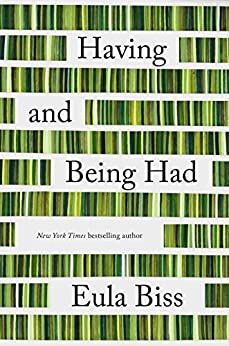More on this book
Community
Kindle Notes & Highlights
Consumption was the opposite of production in Adam Smith’s Inquiry into the Nature and Causes of the Wealth of Nations.
In that crude equation, only work that earns money is productive. And as long as there’s no third quantity, like reproduction, the equation works out to zero.
“We should think about how far we want to extend the metaphor,” Graeber warns. Yes, we consume fossil fuels, in the “eat up, devour, waste, spend” sense of the word. But we don’t consume music. Music becomes part of us, as food does, but it isn’t destroyed in the process.
What is destroyed when we think of ourselves as consumers, Graeber suggests, is the possibility that we might be doing something productive outside of work.
My adult life, I decide, can be divided into two distinct parts—the time before I owned a washing machine and the time after. I consider the possibility that the washing machine, more than the house, has changed my life. I call my sister and tell her that what I’ve really done is buy a $400,000 container for a washing machine.
John Kenneth Galbraith writes in the great first sentence of The Affluent Society. “But, beyond doubt, wealth is the relentless enemy of understanding.”
Galbraith reveals that he began this book with a grant from the Guggenheim Foundation to write a study of poverty, and instead wrote a study of affluence. Nearly all people in nearly all nations, for nearly all of human history, he observes, have been poor. Widespread poverty is not an anomaly. But widespread affluence is. And if we meet this new affluence with old ideas forged in poverty, we will misunderstand ourselves.
Dividing the good rich from the bad rich is a waste of time, Sherman suggests, for the rich and everyone else. “Judging wealthy people on the basis of their individual behaviors—do they work hard enough, do they consume reasonably enough, do they give back enough—distracts us from other kinds of questions about the morality of vastly unequal distributions of wealth,” she writes. We shouldn’t ask our rich to be good, in other words, we should ask our economic system to be better.
I know now that this is how it is with work—sometimes the contract is revised while you’re on the job, already undressed.


